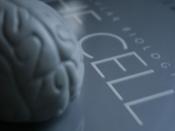The Effects of Hardiness on Stress Levels
In the past researchers have attempted to uncover how individuals differ in their physical and psychological responses to stress. Recently, increased time has been devoted to discovering why some individuals internal processes allow then to deal with stressful situations and life events and why others don't. This fascination is likely attributed to an recent increase in public awareness that high stress can have serious physical consequences, including increases in blood pressure, a contributor to heart attacks, which in Canada alone killed more than 80, 000 individuals last year. Previous theories have speculated mechanisms for dealing with stress. These vary from purely biological or genetic based theories, to social and psychological theories. One study suggests a direct positive correlation between the number of stressful life events and the frequency of sickness. A study done on freshman college student at [Would you insert the institution and the authors name I don't have it here with me] found that when college students were exposed to a cold-causing rhinovirus, 70% of the students who developed a cold had 3 times more life events.
This certainly supports the real physiological power that stress has on individuals, but it is important to consider why some people with high stress avoid sickness, because this would facilitate the discovery of methods for moderating stress. Much of the present research focuses on a balance between several factors that moderate stress. In a study by Frankenhauser, (date), (as cited in Lawlor, Kline, et al.) it is suggested that in order for the negative effects of stress to be minimal, the degree of stress needs to be balanced by the following factors: genetics which govern bodily response, individual coping techniques, social support, bodily response, and a person's cognitive assessment. Frankenhauser's theory gets support from...


